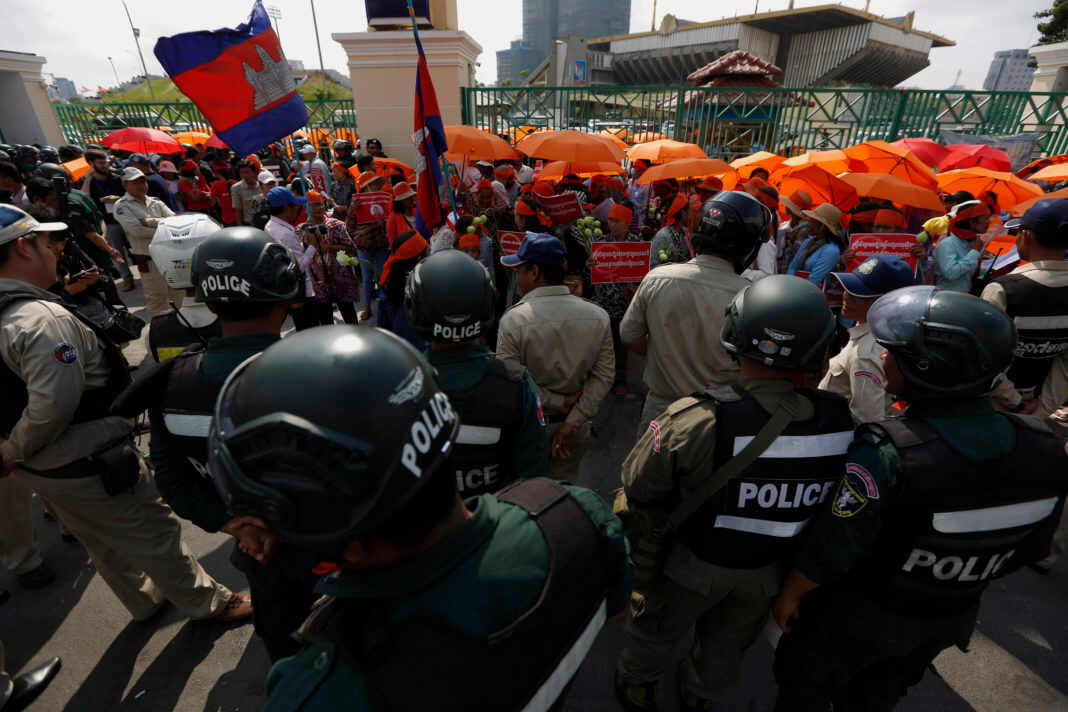In a recent report, UN Special Rapporteur David Kaye raised concerns over the repression of free speech and the right to information in certain countries during the Covid-19 pandemic, including Cambodia. Kaye said, “In the past three months, numerous governments have used the COVID pandemic to repress expression in violation of their obligations under human rights law.”
Kaye named Belarus, Cambodia, China, Iran, Egypt, India, Myanmar, and Turkey as countries of concern in the report. According to the report, people had “died because governments had lied, hidden information, detained reporters, failed to level with people about the nature of the threat, and criminalised individuals under the guise of spreading false information”. In response, Cambodia maintained that its government had “taken measures to ensure that precious lives, particularly the most vulnerable ones, were not lost to Covid-19”.
In another instance, the Cambodian Human Rights Commission rejected a report released by a group of civil society organisations. The report, produced by Freedoms Monitoring Project (FFMP), claimed that the government had severely restricted people’s rights. Soeng Sen Karuna, who was involved in releasing the report said it was “designed for general citizens without an agenda, and it wasn’t unusual for the government to deny the accusations” as “it had done the same in the past with UN reports”.
The Cambodian government arrested several citizens for sharing information on the possible spread of the novel Coronavirus on social media platforms. Certain reports have claimed that from January to June, Cambodian government detained 15 people on fabricated political charges and 80 others were released on bail but could face re-arrest at any time. In March, a 14-year-old was arrested for expressing fears on social media regarding rumours of COVID-19 positive cases in her school. Furthermore, the government also detained members of the disbanded opposition party Cambodia National Rescue Party (CNRP). The authorities alleged that a young member belonging to CNRP spread “fake news on his Facebook page” about the coronavirus. The police released twelve others from detention after forcing them to sign pledges that they would not spread “fake news” in the future and to apologise.
Last year, Cambodian Prime Minister Hun Sen called on ministries to consider creating an anti-fake news law and speed up the drafting of an anti-cybercrime law. From the recent arrests, it appears that enacting such a law remains a priority of the government. In 2019, Cambodia was scored 43 out of 100 on Freedom House’s global freedom index and was considered “partly free”. Within a year, the Southeast Asian country has further slipped in rankings scoring 25 out of 100 and re-categorised as “not free”.
Phil Roberston, the deputy Asia director of Human Rights Watch, criticised Cambodian authorities, stating, “The Cambodian government is misusing the COVID-19 outbreak to lock up opposition activists and others expressing concern about the virus and the government’s response.” Back in January, Prime Minister Hun Sen urged people to “remain calm” regarding the virus and said, “The prime minister does not wear a mask, so why should you be wearing a mask here.” In the same televised press conference the Prime Minister “threatened to kick out reporters or officials seen wearing a face mask”. Cases have since increased in the state, with about 273 confirmed cases as of August.
In February, amidst growing concerns of human rights violations in Cambodia, the European Union suspended its trade privileges with the Southeast Asian nation. In the wake of international criticism, the country’s Ministry of Justice spokesperson Chin Malin said that “the Human Rights Council was a political platform” and added, “It is the right of those countries to raise their concerns with their political agenda. But for us, we have our principles. Our law is our own, and it is enshrined in our country’s sovereignty. No other state can interfere with that and try to command us.”
Cambodia rejects UN Report’s claims of Curbing Freedom of Expression
Human Rights Groups Allege Cambodia using COVID-19 pandemic to Crackdown Opposition
August 14, 2020

Cambodian protesters and police officers stand outside of National Olympic stadium during a International Women's Day rally in Phnom Penh, Cambodia, 08 March 2019. SOURCE: EPA-EFE/KITH SEREY
